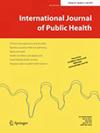Unveiling the Impact of Smokers’ Self-Construals on the Effectiveness of Smoking Cessation Campaigns: A Comparative Analysis of E-Cigarettes and Combustible Cigarettes
IF 2.6
3区 医学
Q2 PUBLIC, ENVIRONMENTAL & OCCUPATIONAL HEALTH
引用次数: 0
Abstract
This research conducted two studies in South Korea to explore the relationship between smokers’ self-construals and the types of cigarettes they use, emphasizing their combined effects on cessation campaign effectiveness.Study 1 explored how smokers’ self-construals influenced their intentions to quit smoking or vaping, considering their primary cigarette usage. Study 2 further investigated this relationship within cessation campaigns, employing messages framed by both self-construal (independent vs. interdependent) and cigarette type (combustible vs. electronic).The results of Study 1 showed that individuals with a strong interdependent self-construal were more likely to express intentions to quit smoking or vaping when using e-cigarettes compared to combustible cigarettes. Similarly, Study 2 demonstrated that cessation messages for e-cigarettes were more effective in eliciting intentions to quit when presented with an interdependent self-construal frame, while messages for combustible cigarettes showed greater effectiveness with an independent self-construal frame.Campaigns solely focused on independent self-construals might not effectively persuade e-cigarette users to quit, as they may prioritize communal wellbeing over individual benefits. Adapting anti-e-cigarette campaigns to align with the values of interdependent self-construals could yield better outcomes in promoting cessation among e-cigarette users.揭示吸烟者的自我暗示对戒烟活动效果的影响:电子烟与可燃卷烟的比较分析
本研究在韩国进行了两项研究,探讨吸烟者的自我概念与他们使用的香烟类型之间的关系,强调两者对戒烟活动效果的综合影响。研究1探讨了吸烟者的自我概念如何影响他们戒烟或吸食电子烟的意愿,同时考虑到他们主要使用的香烟类型。研究2进一步调查了戒烟运动中的这种关系,采用了以自我建构(独立与相互依存)和卷烟类型(可燃与电子)为框架的信息。研究1的结果显示,与可燃卷烟相比,具有强烈相互依存自我建构的人在使用电子烟时更有可能表达戒烟或吸食的意愿。同样,研究2表明,在相互依存的自我建构框架下,电子烟的戒烟信息在激发戒烟意愿方面更有效,而在独立的自我建构框架下,可燃卷烟的戒烟信息显示出更大的有效性。调整反电子烟宣传活动,使其符合相互依存的自我构成的价值观,可以在促进电子烟用户戒烟方面取得更好的效果。
本文章由计算机程序翻译,如有差异,请以英文原文为准。
求助全文
约1分钟内获得全文
求助全文
来源期刊

International Journal of Public Health
医学-公共卫生、环境卫生与职业卫生
CiteScore
4.20
自引率
2.20%
发文量
269
审稿时长
12 months
期刊介绍:
The International Journal of Public Health publishes scientific articles relevant to global public health, from different countries and cultures, and assembles them into issues that raise awareness and understanding of public health problems and solutions. The Journal welcomes submissions of original research, critical and relevant reviews, methodological papers and manuscripts that emphasize theoretical content. IJPH sometimes publishes commentaries and opinions. Special issues highlight key areas of current research. The Editorial Board''s mission is to provide a thoughtful forum for contemporary issues and challenges in global public health research and practice.
 求助内容:
求助内容: 应助结果提醒方式:
应助结果提醒方式:


